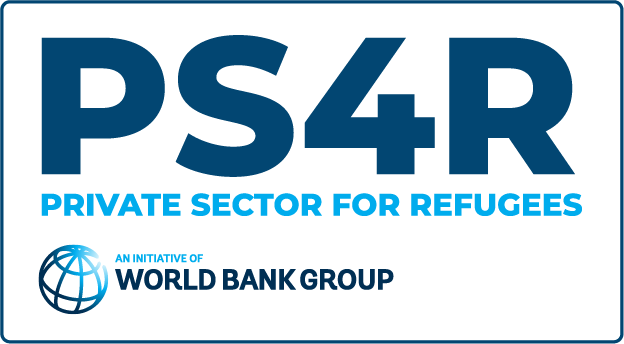If your organization is interested in helping forcibly displaced people and their host communities thrive, PS4R can connect you with tools and opportunities for impact.
Private Sector For Refugees
ADVANCE YOUR DEVELOPMENT GOALS WITH PS4R
-
If you are part of the World Bank team and if your operational project takes place in an area affected by forced displacement, PS4R offers approaches, diagnostics, and tools that can be incorporated into your projects to increase your reach and results. With the PS4R approach, you can design project components at the nexus of private sector, social and humanitarian development, or simply include an FDP lens into your design, to ensure you reach more people and drive growth that helps both the forcibly displaced and their host communities.
To learn more or to access resources in the World Bank internal PS4R Sharepoint, please contact us.
-
If you’re a business that is either owned by, employing or servicing forcibly displaced people, then the PS4R knowledge, tools and methods might help you overcome some of the challenges you may face. You can get inspired by PS4R experience in connecting regional and global companies with FDP-related small and medium enterprises as suppliers and partners. We also offer guidelines and tools that can help you develop your team's awareness of the other ways in which businesses can benefit forcibly displaced people, including in areas like entrepreneurship, employment, investment, or adapting your products and services.
For more on opportunities for business, please contact us.
-
Governments face challenges when affected by forced displacement, but they and their citizens increasingly recognize that refugees can also be an asset. They can contribute to achieving host countries’ regional and national development objectives by bringing new skills to host economies, creating business linkages with other displaced people, host communities, and their home countries, and attracting investments to underserved areas.
However, refugees are also vulnerable and often face more barriers than hosts and economic migrants in accessing finance, opening a bank account, finding a job, or creating a business. Addressing such barriers can help achieve durable solutions for refugees and hosts alike.
Governments that recognize that the private sector is key to achieving sustainable solutions for refugees and their hosts can apply the PS4R Charter of Good Practice to encourage the participation of FDPs and their hosts in the local economy by seeking to remove the legal, institutional, and social obstacles to access jobs or finance for their businesses and support refugees through entrepreneurship, investments, employment, products and services.
To learn more, consult the knowledge and tools page of this website or contact us.
-
Philanthropies can advance development goals by playing a critical, catalytic role in expanding and scaling up programs of the World Bank or other development partners, so they reach forcibly displaced populations. The philanthropic community often brings added experience and expertise working with forcibly displaced people, as well – expertise that can aid in the development of innovative tools and to inform government policy.
To learn more about how philanthropies can work with and support PS4R, please consult our knowledge and tools and Charter of Good Practice or contact us.
-
Multilateral and bilateral development agencies are increasing their support for PS4R in their programing and in their support to the agenda. Local and international non-governmental organizations have also stepped up. If you are one of those actors who have pushed for more knowledge and action on economic empowerment of forcibly displaced people and their host communities, please engage with PS4R, either by ensuring that the tools, guidelines and frameworks can be deployed in your activities, or by supporting the PS4R initiative directly. To do so, please contact us.
